
Find A Professional
More Items From Ergsy search
-

What are the different types of vaccines?
Relevance: 100%
-

What steps can improve vaccine effectiveness?
Relevance: 91%
-

Can everyone receive vaccines?
Relevance: 91%
-

Are vaccines safe?
Relevance: 85%
-

What is a subunit vaccine?
Relevance: 85%
-
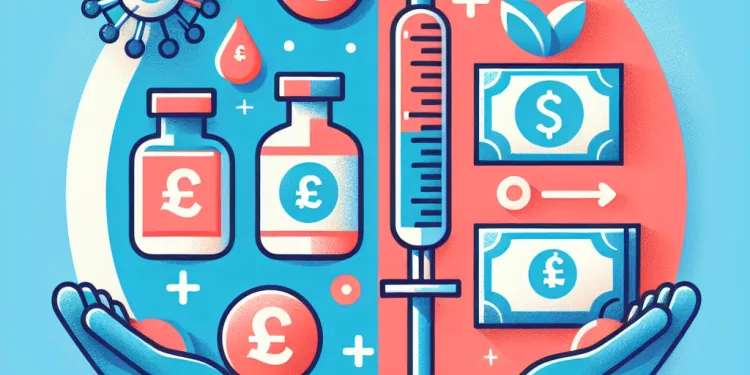
How effective is the flu vaccine?
Relevance: 84%
-
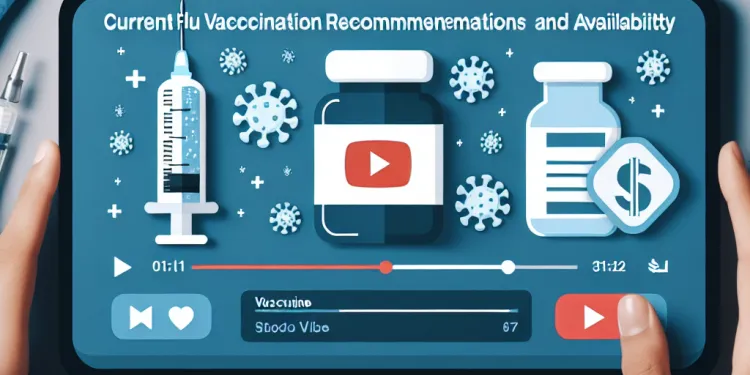
Current Flu Vaccination Recommendations and Availability
Relevance: 83%
-

Can vaccines cause the diseases they protect against?
Relevance: 81%
-

What is a live-attenuated vaccine?
Relevance: 79%
-

What are vaccines and how do they work?
Relevance: 78%
-

What if I'm not eligible for a free flu vaccine, can I still get vaccinated?
Relevance: 77%
-
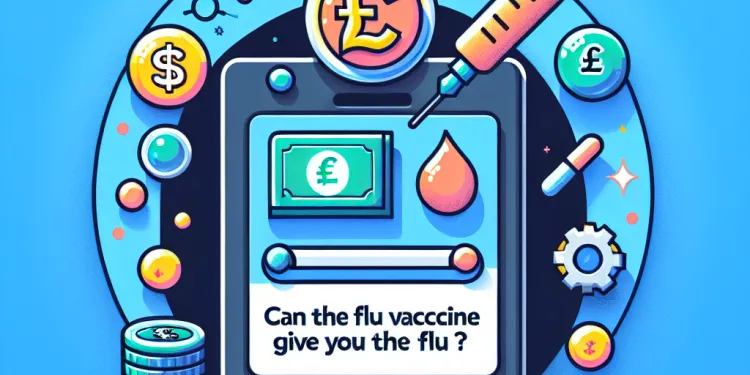
Can the flu vaccine give me the flu?
Relevance: 76%
-
Does the flu vaccine protect against COVID-19?
Relevance: 76%
-

Children's Vaccination Schedule
Relevance: 75%
-

Is the flu vaccine free for everyone in the UK?
Relevance: 75%
-

How does vaccination affect measles rates?
Relevance: 74%
-

When is the best time to get the flu vaccine?
Relevance: 72%
-

Why do vaccinated people sometimes still get sick?
Relevance: 71%
-

Can the flu vaccine give you the flu?
Relevance: 71%
-
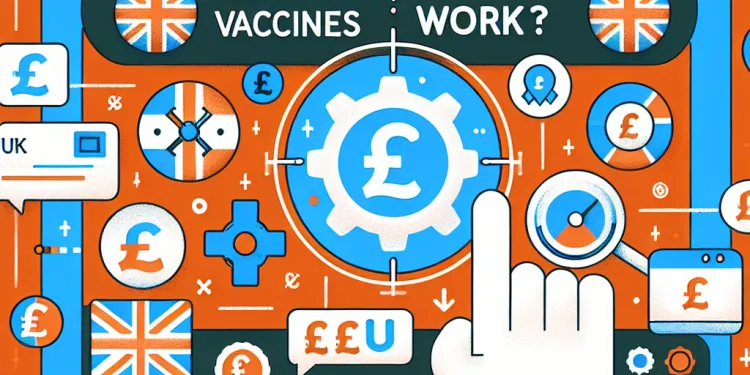
How do vaccines work?
Relevance: 70%
-

Surge in HPV Vaccination Rates Among Young Women in the UK
Relevance: 70%
-

Has a vaccine been developed against Nipah Virus?
Relevance: 70%
-

Why are vaccines important?
Relevance: 70%
-
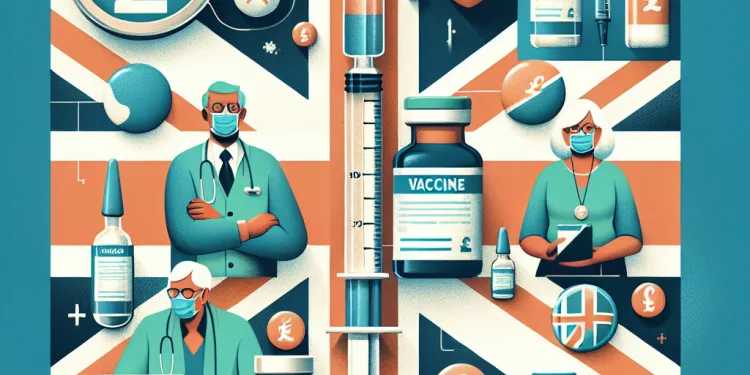
Why do some vaccines require multiple doses?
Relevance: 69%
-

Can adults receive the MMR vaccine?
Relevance: 69%
-

Can pregnant women get the flu vaccine?
Relevance: 69%
-
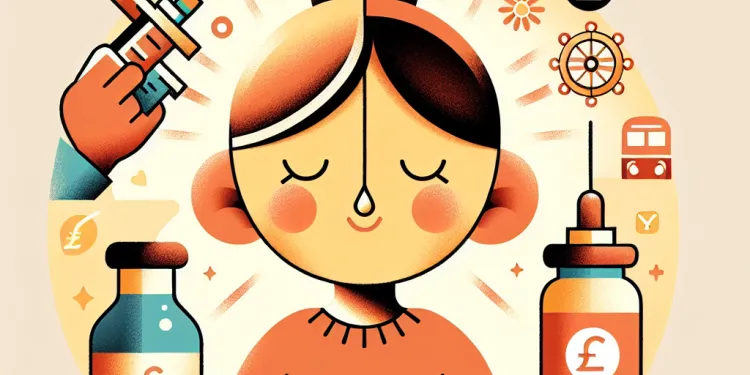
Can children receive the flu vaccine as a nasal spray?
Relevance: 68%
-

Who should get the HPV vaccine?
Relevance: 67%
-

How long does it take for the flu vaccine to become effective?
Relevance: 67%
-

Do I need any vaccine injections for EU countries?
Relevance: 66%
-

What if I have an egg allergy, can I still get the flu vaccine?
Relevance: 66%
-
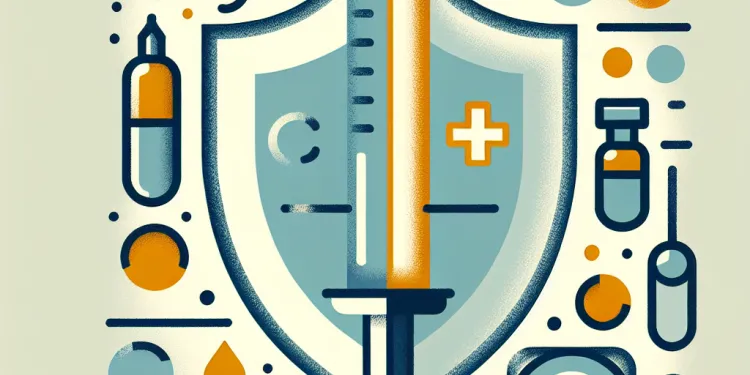
Is there a vaccine for the Zika virus?
Relevance: 66%
-

Are vaccines linked to autism?
Relevance: 65%
-
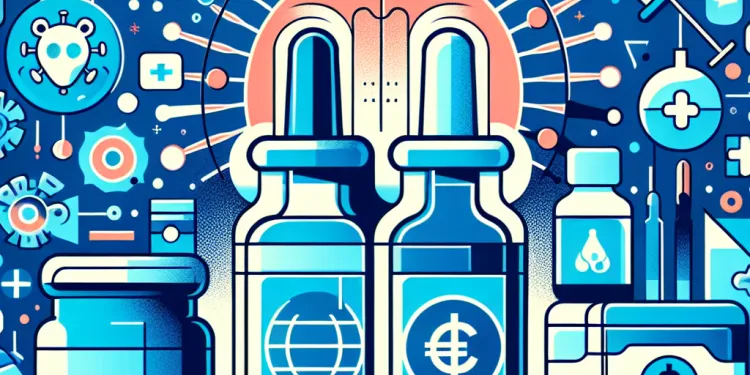
How effective is the MMR vaccine?
Relevance: 65%
-
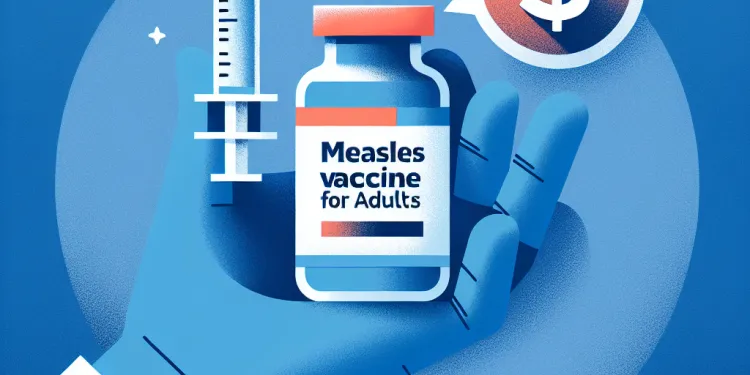
Can the measles vaccine be given to adults?
Relevance: 64%
-

Do vaccines work against new COVID-19 variants?
Relevance: 64%
-

How do I book an appointment for the flu vaccine?
Relevance: 63%
-

What is a vaccine?
Relevance: 63%
-

Who should get the flu vaccine in the UK?
Relevance: 61%
-
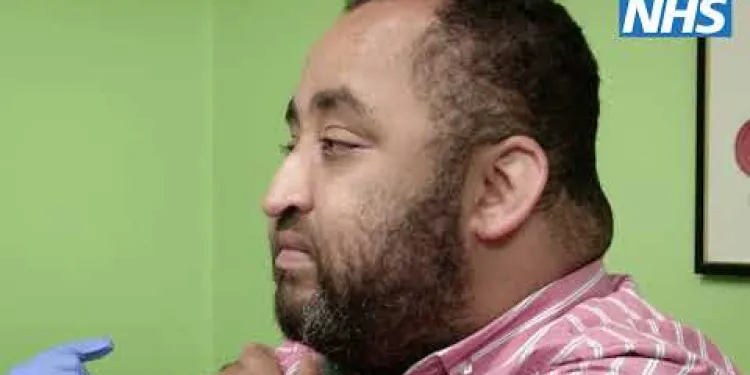
Flu vaccinations for people with a learning disability
Relevance: 59%
Introduction
Vaccination is a crucial public health tool that helps protect individuals and communities from infectious diseases. In the UK, vaccines are widely available and are part of the National Health Service (NHS) immunisation schedule. However, not everyone can receive vaccines due to various factors such as age, health conditions, and allergies.
Eligibility for Vaccines
In the UK, most people are eligible to receive vaccines. The NHS offers a comprehensive immunisation programme aimed at infants, children, adolescents, and adults. Key vaccines are provided at specific ages to protect against diseases like measles, mumps, rubella, whooping cough, and the flu. Generally, vaccines are safe and effective for the majority of the population; however, eligibility can depend on individual health circumstances.
Exemptions Due to Health Reasons
Some individuals are exempt from receiving certain vaccines because of specific health conditions. For example, people with compromised immune systems, such as those undergoing chemotherapy, may need to avoid live vaccines. Similarly, individuals with a history of severe allergic reactions to vaccine components should not receive certain vaccines. Medical professionals assess personal medical history to determine vaccine suitability.
Age Considerations
Age is an important factor in vaccine administration. Vaccination schedules are designed with age-appropriate recommendations in mind. For instance, the UK immunisation programme includes vaccines for infants beginning at eight weeks of age. Older adults are recommended to receive vaccines such as the shingles vaccine and the annual flu vaccine, which are tailored to their age group and specific health risks.
Pregnancy and Vaccination
Pregnant women in the UK are advised to receive some vaccines, such as the flu vaccine and the whooping cough (pertussis) vaccine, to protect both the mother and the newborn. However, certain live vaccines are typically not recommended during pregnancy. It is essential for pregnant women to consult healthcare providers to ensure they receive the appropriate immunisations.
Access and Outreach
The NHS aims to make vaccines accessible to everyone throughout the UK. Efforts are made to reach vulnerable populations and communities with lower vaccination coverage. Educational campaigns and outreach programmes are also implemented to increase awareness and acceptance of vaccination.
Conclusion
While vaccines are a vital component of public health in the UK, not everyone can receive them due to specific health considerations, age, and other factors. It is important to consult healthcare professionals to determine individual eligibility and ensure that everyone who can be vaccinated is covered, thereby contributing to herd immunity and the overall health of the community.
Introduction
Vaccines help keep us safe from getting sick. In the UK, the NHS (National Health Service) offers vaccines to protect us from diseases. Not everyone can get vaccines because of age, health issues, or allergies.
Who Can Get Vaccines?
Many people in the UK can get vaccines. The NHS has a plan to give vaccines to babies, children, teens, and adults. Vaccines help stop diseases like measles, mumps, rubella, whooping cough, and the flu. Most people find vaccines safe and helpful, but if you have certain health problems, you might need to check with a doctor first.
Who Should Not Get Some Vaccines?
Some people should not get certain vaccines because of their health. For example, if someone is having treatment like chemotherapy, they might avoid certain vaccines. Also, those who are allergic to parts of a vaccine should not take it. Doctors will look at your health history to see which vaccines are right for you.
How Age Matters
Age is important for vaccines. Vaccines are given when they work best for different ages. In the UK, babies get their first vaccines at around eight weeks. Older people may need vaccines like the shingles vaccine and the flu shot because it helps protect them as they get older.
Vaccines During Pregnancy
In the UK, pregnant women are advised to get some vaccines like the flu shot and the whooping cough vaccine. These help keep both the mother and baby safe. But not all vaccines are safe during pregnancy, so it's important to talk to a doctor.
Getting Vaccines
The NHS wants to make sure everyone in the UK can get vaccines easily. They try to help communities that might not have as many vaccines. Programs and information help people understand why vaccines are good.
Conclusion
Vaccines are important for staying healthy in the UK. But, because of health or age, not everyone can have them. It is important to talk to healthcare workers to find out if you can get a vaccine. This helps keep everyone healthy and safe.
Frequently Asked Questions
Can everyone receive vaccines?
Not everyone can receive vaccines. Some individuals may have medical conditions or allergies that prevent them from being vaccinated. It's important to consult with a healthcare provider.
Are there age restrictions for vaccines?
Yes, vaccines are often recommended at certain ages, and some vaccines are not given to very young infants or older adults.
Can pregnant individuals receive vaccines?
Some vaccines are safe during pregnancy, and others are not recommended. It is important to consult with a healthcare provider.
Can people with compromised immune systems receive vaccines?
It depends on the vaccine. Some vaccines are safe for people with compromised immune systems, but others, especially live vaccines, may not be recommended.
Are there any vaccines that everyone should avoid?
There are no vaccines that everyone should avoid, but individuals may need to avoid specific vaccines due to personal health conditions.
Can people with allergies receive vaccines?
Some people with severe allergies to components of a vaccine may be advised not to receive that vaccine.
Do vaccines have side effects that could prevent someone from getting them?
Most vaccines have side effects, but they are usually mild. Significant side effects are rare, but they can be a consideration for some individuals.
Can people with a history of vaccine reactions receive future vaccines?
People with a history of severe vaccine reactions should consult with a healthcare provider before receiving future vaccines.
Is there a way to evaluate if someone can safely receive a vaccine?
Yes, healthcare providers can assess medical history, current health status, and potential vaccine contraindications or precautions.
Are there vaccines specifically for children?
Yes, there are several vaccines recommended specifically for children to protect against diseases they're most vulnerable to.
Can elderly individuals receive vaccines?
Yes, certain vaccines are specifically recommended for older adults, such as the influenza and pneumococcal vaccines.
Are there specific vaccines for travelers?
Yes, travelers to certain regions may need additional vaccines to protect against diseases not common in their home country.
How do healthcare providers determine vaccine eligibility?
Providers consider factors like age, health status, medical history, and CDC guidelines when determining vaccine eligibility.
Can vaccines be administered during an acute illness?
Vaccination is generally postponed for people with moderate or severe acute illness until they recover.
Are there vaccines that are only necessary under particular circumstances?
Yes, some vaccines are recommended only for certain risk groups, such as the rabies vaccine for at-risk individuals.
Can individuals with chronic conditions receive vaccines?
It depends on the condition and the vaccine, but many people with chronic conditions can be safely vaccinated.
Are there diseases that permanently prevent vaccination?
Some individuals with certain health conditions or histories may be advised to avoid specific vaccines permanently.
Can breastfeeding individuals receive vaccines?
Yes, most vaccines are safe for breastfeeding individuals and do not affect the safety of breast milk.
Are there vaccines in development that might change eligibility?
Vaccine research is ongoing, and new vaccines that might have different eligibility criteria are always in development.
Can lifestyle factors affect vaccine eligibility?
Yes, factors such as occupation, living environment, and travel habits can influence which vaccines are recommended.
Can everyone get vaccines?
Vaccines help protect us from getting sick. Most people can have vaccines, but some people need extra care.
If you are not sure, talk to a doctor or nurse. They can help you understand what's best for you.
Remember, it's okay to ask questions!
Some people can't get vaccines. They might have health problems or allergies that stop them from getting vaccines. It's a good idea to talk to a doctor or nurse about it.
Can everyone get vaccines?
Vaccines are shots that help keep you healthy. But not everyone can get all vaccines.
Some vaccines are just for kids, while others are for older people.
You should ask a doctor about which vaccines are right for you.
It helps to use pictures or videos to learn more about vaccines.
Yes, doctors say people should get vaccines at certain ages. Some vaccines are not given to very young babies or older people.
Can people who are having a baby get vaccines?
If you are going to have a baby, you might need to get shots to stay healthy.
Here are some tips to help understand:
- Talk to your doctor or nurse about which shots are safe for you.
- Some shots help protect you and your baby from getting sick.
Ask for help or use tools like picture charts if you need more information.
Some vaccines are okay for pregnant people, but some are not okay. You should talk to your doctor or nurse.
Can people with weak immune systems get vaccines?
Some people have weak immune systems. This means their body can't fight germs very well.
Doctors can help. They know which vaccines are safe for people with weak immune systems.
If you have a weak immune system, talk to your doctor. They will tell you if you can get a vaccine.
You can also use pictures or videos to understand better. Ask someone you trust to help you too.
It depends on the vaccine. Some vaccines are safe for people who have weak immune systems. But other vaccines, like live vaccines, might not be safe.
Should anyone stay away from some vaccines?
Some people might need to stay away from certain vaccines. This could be because of allergies or health problems. It's always best to talk to a doctor first. They can help decide which vaccines are safe for you.
To help understand, you can:
- Ask a trusted adult for help.
- Use picture guides or simple charts to follow advice.
- Talk to your doctor about what is best for you.
Everyone can get vaccines, but some people might need to avoid certain ones because of their health.
Can people with allergies get vaccines?
If you have allergies, you might wonder, "Can I get a vaccine?" Here is some simple information to help you:
Talk to Your Doctor: If you have allergies and need a vaccine, always talk to your doctor first. They know what is best for you and can give you good advice.
Different Allergies: There are many types of allergies. Some people are allergic to food, while others might be allergic to pollen or pets. It’s important to tell your doctor about all your allergies.
Be Safe: Your doctor might decide it is safe for you to get a vaccine, or they might provide a plan to make sure you are safe.
Special Vaccines: Sometimes there are special vaccines for people with allergies. Your doctor will know if there is a good option for you.
Ask Questions: Always ask questions if you do not understand something. It is okay to ask your doctor and get the information you need.
Tools to Help: You can use pictures, simple words, and ask someone to come with you for support. These can help you understand more about vaccines.
Some people can get very sick if they have an allergy to a part of a vaccine. These people might be told not to get that vaccine.
Can vaccines make people feel unwell, so they don't want to get them?
Most vaccines can cause side effects, but they are usually not serious. Serious side effects are very rare, but some people might worry about them.
Can people who had a bad reaction to a vaccine get more vaccines?
Some people had a bad reaction after getting a vaccine before. They might wonder if they can get more vaccines.
Here are some things to think about:
- Talk to a doctor. They can give advice on what to do.
- The doctor might check the type of reaction you had.
- Some people can get other vaccines but in a safe way.
- Using tools like pictures or videos can help you learn more.
If you do not understand, ask an adult to help explain.
If you had a bad reaction to a vaccine before, talk to a doctor or nurse before you get another vaccine.
How can we check if a person can safely have a vaccine?
Here is a simple way to find out if a vaccine is safe for someone:
- Talk to a doctor or a nurse. They can help you understand if the vaccine is safe for you.
- Answer questions about your health. This helps to see if the vaccine is okay for you.
- Use picture cards to show how you feel if talking is hard. The doctor can help you with this.
- Ask for someone to help you understand the information.
Remember, doctors and nurses are there to keep you safe and healthy!
Yes, doctors and nurses can look at your past health, how you are feeling now, and any reasons you might not be able to have a vaccine.
If you find reading difficult, try using a ruler or your finger to follow the words. You can also ask someone to read it out loud with you.
Are there vaccines just for kids?
Yes, there are shots that help stop children from getting sick. Doctors give these to kids to keep them healthy.
If you want to know more, you can ask a doctor or nurse. They can tell you which shots are important for children.
It helps to have pictures or videos to learn more about these shots. You can also talk about it with a parent or teacher.
Yes, there are shots just for kids. These shots help keep children safe from getting sick.
Can older people get vaccines?
Yes, older people can get vaccines.
Vaccines help protect them from getting sick.
If you have questions, ask a doctor or a nurse.
They can help and give good advice.
Yes, some shots are good for older people. These shots help keep them healthy. Some of these shots are for the flu and the pneumococcal disease.
Are there special shots for people who travel?
Yes, people who travel to some places might need extra shots. These shots help protect them from getting sick with things that are not common in their home country.
How do doctors decide who gets a vaccine?
Doctors figure out who should get a vaccine to keep people healthy and safe. Here is how they do it:
- They look at your age.
- They check your health history.
- They see if you have any other health problems.
If you need help understanding, you can:
- Ask your doctor to explain slowly.
- Use pictures to help you understand.
- Bring a friend or family member to help you.
Doctors think about things like how old you are, how healthy you are, and your past medical problems when deciding if you can get a vaccine. They also follow rules from the CDC, which is a big health organization.
If you find reading hard, ask someone to read this to you. You can also use tools like audiobooks or apps that read text out loud.
Can you get a vaccine if you are sick?
If you are not feeling well, you might wonder if you can still get a shot to prevent illness.
Here are some things to know:
- If you only have a mild illness, like a cold, it is usually okay to get the vaccine.
- If you are very sick or have a fever, it is better to wait until you feel better.
- Always ask your doctor or nurse if you are not sure. They are there to help you.
Some tools can help:
- Have someone you trust go with you to your appointment.
- Write down your questions before you visit the doctor.
People who are very sick usually wait to get their vaccine until they feel better.
Do you need some vaccines only in special situations?
Yes, some vaccines are needed only for certain people. For example, the rabies vaccine is for people who might be in danger of catching rabies.
To get help with reading, you can use tools like audiobooks or ask someone to read it with you. Highlighting important words can also help you understand better.
Can people who are sick for a long time get vaccines?
It depends on what health problem you have and which vaccine it is, but many people who are sick for a long time can get vaccines safely.
Are there illnesses that mean someone can never have a vaccine?
Some health problems can stop people from getting vaccines because it might not be safe for them. It's important to talk to a doctor. They can help you understand what to do.
Here are some tools that can help:
- Talk to your doctor to learn more.
- Use pictures to understand how vaccines work.
- Ask someone you trust to help explain things.
Some people might need to stay away from certain vaccines. This can be because of their health or past health problems.
Can people who breastfeed get vaccines?
If you are breastfeeding, you might wonder if you can get a vaccine. The answer is yes. It is safe for breastfeeding people to get vaccines. If you are unsure, ask your doctor or nurse. They can help you feel better about your choice.
Here are some tips to help you understand:
- Vaccines are medicines that help keep you from getting sick.
- Getting a vaccine is usually safe, even if you are breastfeeding.
- If you have questions, talking to a doctor can help.
Support tools that can help:
- Ask someone you trust to read with you.
- Watch a video about vaccines to learn more.
- Use pictures or drawings to help understand the words.
Yes, most vaccines are safe for people who are breastfeeding. They do not make breast milk unsafe.
Are new vaccines being made that could change who can get them?
Scientists are always working on new vaccines. These new shots might be for different people.
Do the way you live change if you can get a vaccine?
Yes, what job you have, where you live, and where you travel can change which vaccines you need.
Useful Links
- Ergsy carfully checks the information in the videos we provide here.
- Videos shown by Youtube after a video has completed, have NOT been reviewed by ERGSY.
- To view, click the arrow in centre of video.
- Most of the videos you find here will have subtitles and/or closed captions available.
- You may need to turn these on, and choose your preferred language.
- Go to the video you'd like to watch.
- If closed captions (CC) are available, settings will be visible on the bottom right of the video player.
- To turn on Captions, click settings .
- To turn off Captions, click settings again.
More Items From Ergsy search
-

What are the different types of vaccines?
Relevance: 100%
-

What steps can improve vaccine effectiveness?
Relevance: 91%
-

Can everyone receive vaccines?
Relevance: 91%
-

Are vaccines safe?
Relevance: 85%
-

What is a subunit vaccine?
Relevance: 85%
-

How effective is the flu vaccine?
Relevance: 84%
-

Current Flu Vaccination Recommendations and Availability
Relevance: 83%
-

Can vaccines cause the diseases they protect against?
Relevance: 81%
-

What is a live-attenuated vaccine?
Relevance: 79%
-

What are vaccines and how do they work?
Relevance: 78%
-

What if I'm not eligible for a free flu vaccine, can I still get vaccinated?
Relevance: 77%
-

Can the flu vaccine give me the flu?
Relevance: 76%
-
Does the flu vaccine protect against COVID-19?
Relevance: 76%
-

Children's Vaccination Schedule
Relevance: 75%
-

Is the flu vaccine free for everyone in the UK?
Relevance: 75%
-

How does vaccination affect measles rates?
Relevance: 74%
-

When is the best time to get the flu vaccine?
Relevance: 72%
-

Why do vaccinated people sometimes still get sick?
Relevance: 71%
-

Can the flu vaccine give you the flu?
Relevance: 71%
-

How do vaccines work?
Relevance: 70%
-

Surge in HPV Vaccination Rates Among Young Women in the UK
Relevance: 70%
-

Has a vaccine been developed against Nipah Virus?
Relevance: 70%
-

Why are vaccines important?
Relevance: 70%
-

Why do some vaccines require multiple doses?
Relevance: 69%
-

Can adults receive the MMR vaccine?
Relevance: 69%
-

Can pregnant women get the flu vaccine?
Relevance: 69%
-

Can children receive the flu vaccine as a nasal spray?
Relevance: 68%
-

Who should get the HPV vaccine?
Relevance: 67%
-

How long does it take for the flu vaccine to become effective?
Relevance: 67%
-

Do I need any vaccine injections for EU countries?
Relevance: 66%
-

What if I have an egg allergy, can I still get the flu vaccine?
Relevance: 66%
-

Is there a vaccine for the Zika virus?
Relevance: 66%
-

Are vaccines linked to autism?
Relevance: 65%
-

How effective is the MMR vaccine?
Relevance: 65%
-

Can the measles vaccine be given to adults?
Relevance: 64%
-

Do vaccines work against new COVID-19 variants?
Relevance: 64%
-

How do I book an appointment for the flu vaccine?
Relevance: 63%
-

What is a vaccine?
Relevance: 63%
-

Who should get the flu vaccine in the UK?
Relevance: 61%
-

Flu vaccinations for people with a learning disability
Relevance: 59%